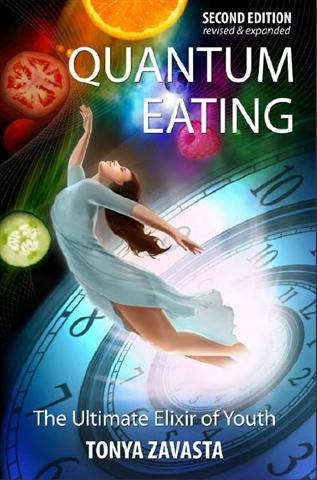Monkeying Around With Calorie Restriction

The raw food diet is by far the healthiest diet known to humankind. Yet not all people who consume a raw food diet necessarily wind up living longer than their cooked-food-eating counterparts.
Those who do, however, usually all have one thing in common, even if their diet is not 100 percent raw. And that common element is not forking over large sums of cash for outrageously expensive or exotic supplements. It is quite simple. So simple, in fact, that it is often overlooked. Here’s the essence of it: They all eat very little food. Recent research has verified the age-defying effects of what has come to be known as ‘caloric restriction.’
Caloric restriction is not at all to be confused with starvation or malnutrition. It simply means cutting calories by about 30% over a period of time, enabling the body to become even healthier and more efficient at processing and assimilating the food and nutrients it takes in.
Results of a recently published 20-year experiment done on Rhesus monkeys shows that cutting calories, without sacrificing nutrition, actually slows the aging process. Experiments have been done in the past on worms, flies and rodents which revealed the same results. But given the fact that humans (at least most of them!) are much more biologically similar to Rhesus monkeys, scientists believe the results of this study are even more relevant in determining the anti-aging effects of caloric restriction on humans. Additionally, studies have compared the longevity effects of the slightly sparser Japanese diets to the American diets and reached the same conclusions.
One of the main benefits in practicing caloric restriction comes from the fact that it saves the wear and tear on your body caused by ingesting large quantities of food, enabling your body to last longer in a healthier state. This, of course, is an oversimplification, but that is essentially what is accomplished in the long run.
The Rhesus monkey study showed that the death rate from age-related conditions was 3 times higher in monkeys who were not put on calorie-restricted diets. Eating too much food takes needed energies from the body that could be used to ward off disease, and at the same time wears it out, trying to cope with too many calories to process.
You can read more about caloric restriction as I practice it in my books Quantum Eating and Raw Food and Hot Yoga.
In summary, we can see that a person who is after not only health, but longevity as well, would be wise to consider restricting at least somewhat the calories consumed daily, to allow the body an opportunity to experience the benefits. Not only is it easier, but it’s far less expensive than buying potions and pills that promise all manner of results but have yet to deliver any proof of their ability to extend lifespan or improve quality of life for those in their later years.
The choice is yours. As for me, I will put down the fork instead of forking over the cash.


